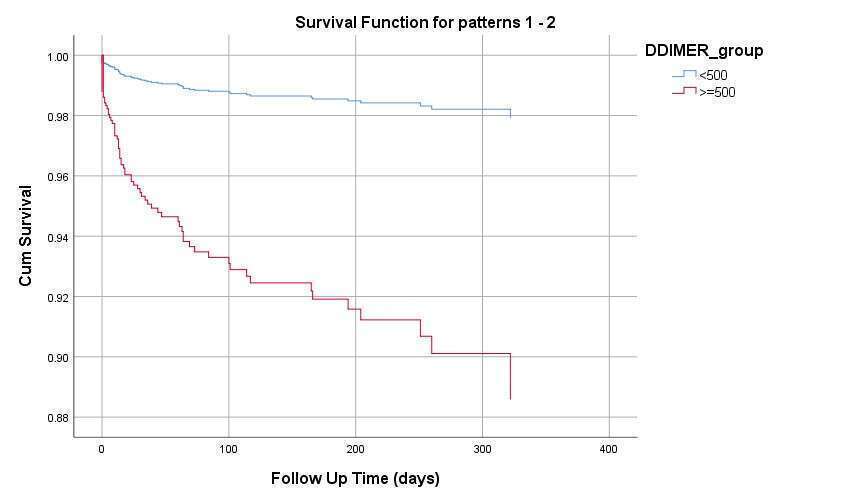
D-Dimer as a Prognostic Factor in Patients Admitted to a Tertiary Care Intensive Coronary Care Unit.
Introduction: D-dimer is a small protein fragment and is a product of fibrinolysis. A high levels of D-dimer have been suggested as a prognostic factor in cancerous and other critically ill patients. We aimed to evaluate D-dimer levels and outcomes of critically ill patients admitted to a tertiary care intensive coronary care unit (ICCU).
Material and method: All patients admitted to the ICCU at Sha`are Zedek Medical Center between January 1, 2020 and December 31, 2020 were included in the study. Patients were divided into 2 groups according to their D-Dimer level on admission. Low D-Dimer level < 500 ng/ml, and high d-Dimer level ≥ 500 ng/ml. Survival, in-hospital interventions and complications were compared.
Results and discussion: Overall 1,082 consecutive patients were included, mean age was 67 (±16), 70% were males. Of them 296 (27.4%) had low D-Dimer level and 663 (61.3 %) had high D-Dimer level. Patients with high D-Dimer level were older as compared to patients with low D-Dimer level (mean age 70.4±15 and 59±13 years respectively, p=0.004), had significantly higher rate of any prior cardiac interventions prior to their admission (26.7% vs 4.4% respectively, p<0.0001). Interestingly, patients with high D-Dimer level had significantly lower rate of any acute coronary syndrome as compared with the low D-Dimer group (25.7 vs 66.4% respectively, p<0.0001) and lower rate of smokers (22.5 vs 45.6% respectively, p<0.0001). All 11 post-COVID-19 patients had high D-Dimer level on admission. A multivariate Cox proportional hazards analysis for mortality, adjusted for age, gender, risk factors for cardiovascular disease, ejection fraction (EF)
Conclusion: Elevated D-Dimer levels on admission in ICCU patients is a poor prognostic factor of in-hospital morbidity and mortality in the first year following hospitalization.

Powered by Eventact EMS